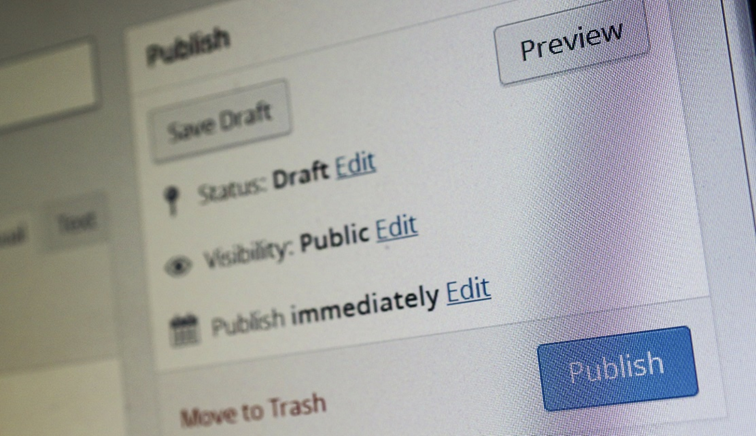What Is Duplicate Content? Causes and Solutions to Remove Them

Duplicate content is generally known as those blocks of content within or across domains. Duplicate content either completely matches other content or, in some ways, appreciably similar. It is a piece of content with word-to-word similarity with the content that appears on another page or website. Google considers duplicate content as a negative factor that significantly lowers SERP ranking. Having large amounts of duplicate content affects the quality and value of information offered to readers and site visitors.Lets see What Is Duplicate Content Causes and Solutions to Remove Them.
Whenever you try to copy, scrape or spin an existing content, Google considers it as copied. If you intend to get a higher ranking by deceiving the search engine, you play on dangerous ground. Duplicate content present on a website is not up to action unless the intent is to gain rankings by manipulation.
Difference Between Duplicate Content, Copied Content, and Thin Content
The topic of duplicate content seems confusing for many. Google takes it in a technical sense, but it also looks at the content itself. Readers become confused in choosing if there are two URLs available for the same article. At the same time, regular people consider the presence of the same content elsewhere as duplicate. However, in terms of determining rankings, Google draws a fine line between duplicate, copied, and thin content.
Duplicate content may classify itself as copied if you take a piece of content and rehash it to use on your site. It does not matter if you add a few keywords or give it a little spin; the behavior is unethical and not acceptable. Next comes the prospect of thin content, which does not offer any quality to a reader. If your page has little to no quality, you remain in danger of a penalty. Site and content quality is a significant issue that needs adjustment. Otherwise, it brings grave harm to the website and its rankings.
Determining Duplicate Content
Duplicate content, if present in small quantity, is not a harmful matter. The problem arises when someone copies the whole piece and tries to pass it on. Determining duplicate content becomes all the more critical if you need rankings and avoid penalties. Here, canonical tags’ importance comes into play. It will help if you read the Beginner’s Guide to Canonical Tags for in-depth details to separate duplicate content. Canonical tags tell a search engine about pages to display in search engines. It means if you have two pages of similar content, It can tell which one is the master copy and which is duplicate. To explain, consider pages A and B, which have duplicate content present. You want to indicate to the search engine that A is the master copy and B does not appear in searches. Adding a canonical tag will divert all visitors from B to A that receives all SEO juice.
Effects of Duplicate Content on Rankings
In general, Google does not want to rank pages that contain duplicated, copied, or thin content. Google considers content with quality and precise information for indexing. If your page does not have specific information, then it will hurt your SERP rankings. You might face three main issues by using duplicate content on your website. These include:
- Fewer Organic Traffic
This issue is very straightforward and self-explanatory. Google does not want to rank pages that use content already available in Google’s index, including pages from your website. For example, you have three pages with duplicate content in which Google is not sure which one to consider original. As a result, all three pages will struggle hard to gain a ranking. In many cases, all three pages will not appear in SERP. A visitor will have no availability of your page and, in turn, result in lesser organic traffic on your website. It has a severe impact on your rankings and overall business intention.
- Danger of Penalty
Google has stated multiple times that it considers duplicate content a penalizing factor that leads to complete deindexing of a website. Google perceives duplicate content as manipulating element to gain a quick boost to ranks or deceive users. As a result, the site suffers from reduced ranking or complete removal from the Google index. In short, it receives a penalty that does not display t on the result page.
- Fewer Indexed Pages
This issue usually happens with E-commerce sites that have lots of pages. Sometimes Google does not downrank a site with duplicate content; it refuses to index it completely. If you see that your site is not indexing properly, you waste your crawl budget on duplicate content.
Causes of Duplicate Content
Causes of duplicate content have various reasons in which most have technical nature. Duplicate content usually presents itself because of human error to notify the original page. Developers share some significant causes of duplicate content that includes:
- Misunderstand the concept of URL due to a language barrier or database issue. Sometimes developers mix the URL and article ID concept that results in the appearance of duplicate content pages.
- URL parameters used for tracking and sorting do not change the concept of the content. This issue goes for every parameter does not change the vital piece of content and mixes it with the same content on another page.
- Some websites use your content without your consent and do not link to you. Search engines do not find the original piece and have to deal with another variation of the same piece. Popular sites have content scrappers, which makes the issue too big to handle.
Points to Handle Duplicate Content
- Use 301 redirects in your .htaccess file to redirect users, Google bots, and crawlers to other pages
- Keep internal linking constant to index first and become the owner of the content
- Use top-level domain
- try-specific content
- If you allow syndication of your content, ensure that you receive a link back to your original copy
- Avoid using lengthy copyright text on the bottom of your content
- Understand the terms and conditions of the content management system for your website
- Try to minimize duplicate content by merging pages with the same information
Final Word
The duplicate content has increased with each passing day as the influx and demand for information rise. The causes mentioned above are some of the major ones highlighted by Google and other authorities. Try to avoid duplicate content to keep away from penalties and de-ranking.
Table of Contents








